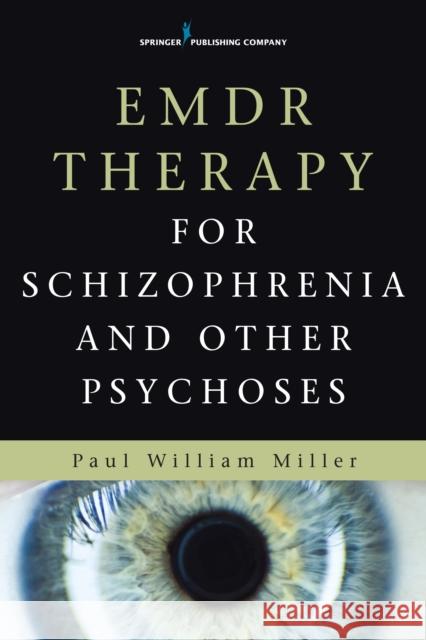Emdr Therapy for Schizophrenia and Other Psychoses » książka
Emdr Therapy for Schizophrenia and Other Psychoses
ISBN-13: 9780826123176 / Angielski / Miękka / 2015 / 296 str.
"The book exudes an atmosphere of openness, curiosity, humanism, and growth instead of control... This book is recommended to every therapist interested in the turbulent history of controversies and paradigms surrounding schizophrenia/psychosis and trauma. Paul de Bont, Matty Geurink, PsycCRITIQUES"Dr. Paul Miller takes EMDR theory, research, and practice a major step forward with his new book. He] explores the way both researchers and clinicians can successfully integrate EMDR theory and therapy into the current understanding and work with schizophrenia and other psychoses. I believe this volume will be a milestone in the development of EMDR." Udi Oren, PhD, President, EMDR Europe Association "The EMDR community has been waiting for Paul to publish this book He has a tremendous reputation, nationally and internationally " Uri Bergmann, PhD, Recent Past-President, EMDRIA Author, Neurobiological Foundations for EMDR Practice This groundbreaking resource is the first to apply EMDR therapy to individuals with schizophrenia and other psychotic disorders. Written by the recognized world leader in using EMDR therapy to treat psychoses, the book delivers state-of-the-art research on this topic. It demonstrates how EMDR therapy can be safely used to help individuals with schizophrenia and other psychoses by formulating these disorders within a trauma and dissociation model. The book describes ICoNN (Indicating Cognitions of Negative Networks), an easy-to-use modification to the standard EMDR therapy eight-phase model, and includes actual case studies to illustrate its use. These case studies of patients that have been successfully treated with EMDR therapy serve as valuable templates for clinicians regarding obtaining patient histories, examining mental states, case formulation, and treatment planning. Scripted materials provide additional guidance to therapists working with this client group. The book traces the evolution of the phenomenology of psychoses from Kraepelin's dementia praecox through to Kendler's substantial nosological contribution to the modern phenotype for schizophrenia. Using Kendler's criteria, it aids the clinician in identifying those clients most likely to benefit from EMDR therapy. The book demonstrates how to formulate cases within a trauma model to facilitate the strong therapeutic rapport needed when treating patients with psychoses. It describes the ICoNN model, which provides a semistructured method of formulating and treating complex cases, and underscores its value as a unifying model that facilitates research. Chapters reinforce the theoretical foundations of EMDR therapy through learning objectives and summaries covering historical, phenomenological, and clinical facets of EMDR therapy with psychotic patients. KEY FEATURES:
- Guides clinicians in the safe, proven use of EMDR therapy to treat psychoses
- Authored by a recognized world leader in EMDR therapy for treatment of psychoses
- Describes ICoNN, an easily understood adaptation to the standard 8-phase EMDR therapy model
- Summarizes the trauma and dissociation literature
- Provides case examples and scripted materials to guide the therapist











